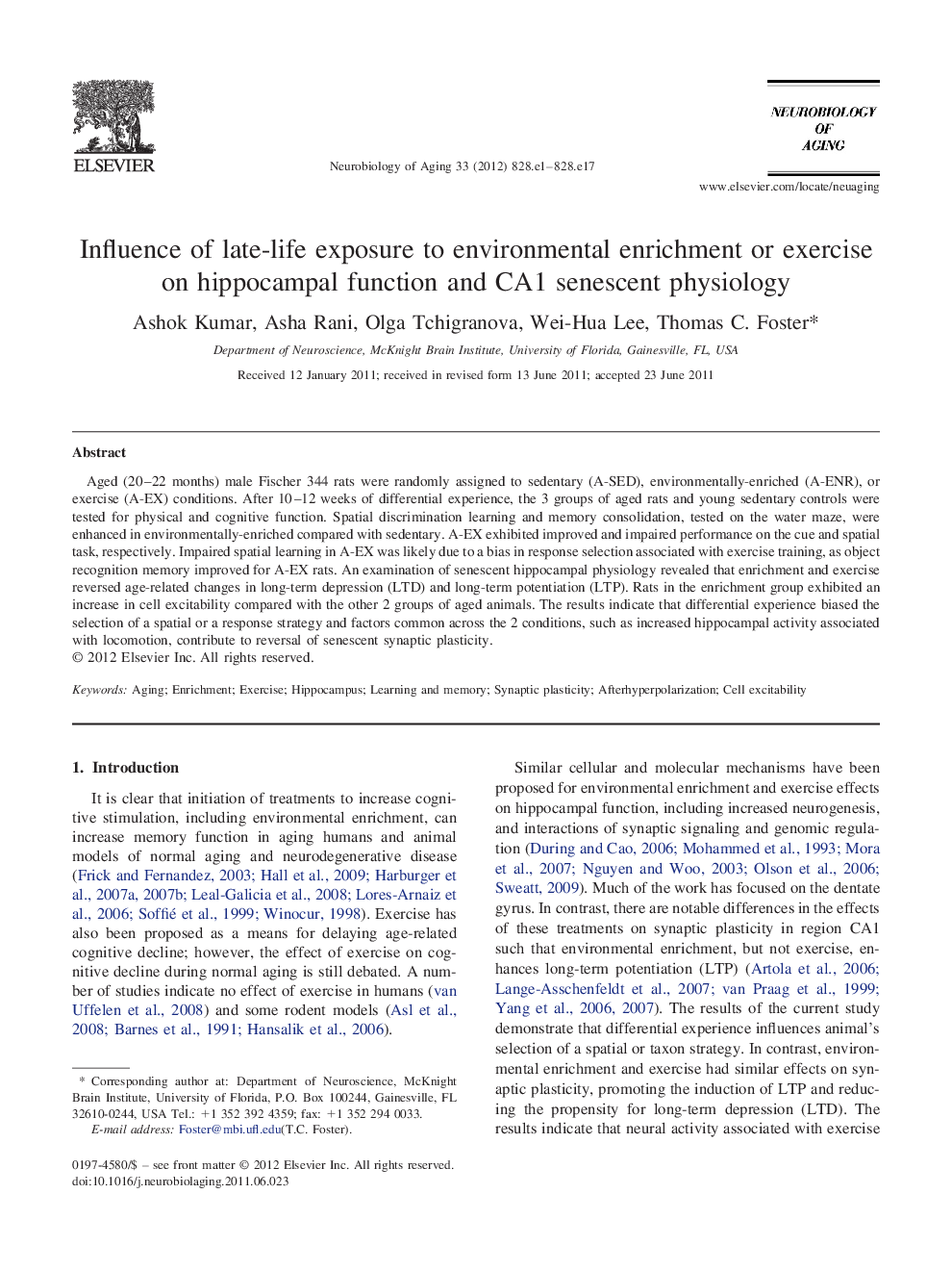| Article ID | Journal | Published Year | Pages | File Type |
|---|---|---|---|---|
| 6809468 | Neurobiology of Aging | 2012 | 17 Pages |
Abstract
Aged (20-22 months) male Fischer 344 rats were randomly assigned to sedentary (A-SED), environmentally-enriched (A-ENR), or exercise (A-EX) conditions. After 10-12 weeks of differential experience, the 3 groups of aged rats and young sedentary controls were tested for physical and cognitive function. Spatial discrimination learning and memory consolidation, tested on the water maze, were enhanced in environmentally-enriched compared with sedentary. A-EX exhibited improved and impaired performance on the cue and spatial task, respectively. Impaired spatial learning in A-EX was likely due to a bias in response selection associated with exercise training, as object recognition memory improved for A-EX rats. An examination of senescent hippocampal physiology revealed that enrichment and exercise reversed age-related changes in long-term depression (LTD) and long-term potentiation (LTP). Rats in the enrichment group exhibited an increase in cell excitability compared with the other 2 groups of aged animals. The results indicate that differential experience biased the selection of a spatial or a response strategy and factors common across the 2 conditions, such as increased hippocampal activity associated with locomotion, contribute to reversal of senescent synaptic plasticity.
Keywords
Related Topics
Life Sciences
Biochemistry, Genetics and Molecular Biology
Ageing
Authors
Ashok Kumar, Asha Rani, Olga Tchigranova, Wei-Hua Lee, Thomas C. Foster,
